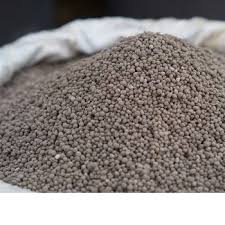
12 月 . 26, 2024 07:07 Back to list
organic nitrogen for plants
The Role of Organic Nitrogen in Plant Growth
Organic nitrogen plays a crucial role in the growth and development of plants. As one of the key macronutrients, nitrogen is essential for the synthesis of amino acids, proteins, nucleic acids, and various other vital compounds in plant cells. Unlike inorganic forms of nitrogen, which are often found in fertilizers, organic nitrogen is derived from living organisms and organic matter, providing a more sustainable source for plants.
Understanding Organic Nitrogen
Organic nitrogen originates from the decomposition of plant and animal residues, as well as the metabolic byproducts of microorganisms. Common sources of organic nitrogen include compost, manure, cover crops, and other decaying organic materials. The presence of organic nitrogen in soil enhances its fertility and nutrient-holding capacity, making it an integral part of sustainable agricultural practices.
Plants absorb nitrogen primarily in the form of nitrates and ammonium, but organic nitrogen must first be converted into these usable forms through a process known as mineralization. This transformation is facilitated by soil microbes, which break down organic matter and release nitrogen in a form that plants can readily absorb. This microbial activity is essential for maintaining soil health and supporting plant nutrient uptake.
Benefits of Organic Nitrogen for Plants
1. Sustainable Nutrient Supply Organic nitrogen sources release nutrients slowly over time, providing a steady supply that aligns with plant growth patterns. This gradual availability reduces the risk of nutrient leaching and runoff, ensuring that plants have access to nitrogen when they need it most.
organic nitrogen for plants

2. Improved Soil Structure The incorporation of organic matter, which is rich in organic nitrogen, enhances soil structure by improving aeration and water retention. Healthy soil promotes deep root development, helping plants access more nutrients and water.
3. Enhanced Microbial Activity Healthy soil microbiomes are vital for nutrient cycling. Organic nitrogen enhances microbial diversity and activity, which further aids in the breakdown of organic material and nutrient release. This relationship between plants and soil microbes is essential for robust plant health.
4. Reduction of Soil Compaction The use of organic nitrogen can reduce soil compaction, allowing for better root penetration and water movement through the soil. This is particularly important in agricultural systems where heavy machinery can lead to compacted soils that hinder plant growth.
5. Environmental Benefits Utilizing organic sources of nitrogen minimizes the environmental impacts typically associated with synthetic fertilizers, such as groundwater contamination and the emission of greenhouse gases. Organic practices promote a healthier ecosystem by reducing chemical inputs and fostering biodiversity.
Conclusion
Incorporating organic nitrogen into agricultural and gardening practices is a cornerstone of sustainable plant growth. It not only supports the nutritional needs of plants but also enhances soil health, promotes microbial activity, and reduces environmental impacts. As we strive for more sustainable agricultural systems, understanding and utilizing organic nitrogen will be key to achieving long-term food security and environmental stewardship.
Encouraging the use of compost, cover crops, and organic fertilizers will lead to healthier plants and more resilient ecosystems. By making informed decisions about nutrient management, farmers and gardeners can contribute to a more sustainable future, ensuring that plants thrive in a balanced and nurturing environment.
-
Calcium Ammonium Nitrate (CAN) White Granular Agriculture Fertilizer
NewsAug.22,2025
-
Organic 10-10-10 Fertilizer: Balanced NPK for Healthy Plants
NewsAug.21,2025
-
10 10 10 Organic Fertilizer: Balanced NPK for Healthy Gardens
NewsAug.19,2025
-
Advansix Sulf-N Ammonium Sulfate 21-0-0 Fertilizer
NewsAug.18,2025
-
Organic 10-10-10 Fertilizer: Balanced NPK for Superior Plant Growth
NewsAug.17,2025
-
Premium Organic 10-10-10 Fertilizer for All Plants
NewsAug.16,2025
